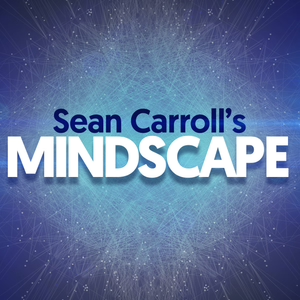
The end of good and evil | Slavoj Žižek, Maria Balaska, Rowan Williams, Richard Wrangham
01/09/24 • 55 min
Can humans ever be inherently good or evil?
Looking for a link we mentioned? Find it here: https://linktr.ee/philosophyforourtimes
Whether we see humans as essentially good or essentially selfish and violent has been central to our politics, our account of society, and our vision for social progress. But is this very distinction itself a mistake? Recently, Harvard scientists have shown humans to be both the kindest and most malevolent species on the planet. While figures like Hitler and Stalin though responsible for tens of millions of deaths were also remarkably empathetic in aspects of their private lives.
Should we give up the idea therefore that humans are either inherently good or bad and conclude that all of us are both at the same time with potentially profound consequences for our political beliefs? Or is it vital to retain the distinction to alert us to danger and to drive personal and social change? Or more profoundly, are the categories of good and bad themselves the underlying error and unhelpful, and even dangerous, ways of categorising human behaviour?
Anthropologist and Harvard University Professor Richard Wrangham, renowened philosopher and cultural critic Slavoj Žižek, University of Hertfordshire professor Maria Balaska and the 104th Archbishop of Canterbury Rowan Williams join Myriam François to discuss the nature of good and evil.
There are thousands of big ideas to discover at IAI.tv – videos, articles, and courses waiting for you to explore. Find out more: https://iai.tv/podcast-offers?utm_source=podcast&utm_medium=shownotes&utm_campaign=the-end-of-good-and-evil
See Privacy Policy at https://art19.com/privacy and California Privacy Notice at https://art19.com/privacy#do-not-sell-my-info.
Can humans ever be inherently good or evil?
Looking for a link we mentioned? Find it here: https://linktr.ee/philosophyforourtimes
Whether we see humans as essentially good or essentially selfish and violent has been central to our politics, our account of society, and our vision for social progress. But is this very distinction itself a mistake? Recently, Harvard scientists have shown humans to be both the kindest and most malevolent species on the planet. While figures like Hitler and Stalin though responsible for tens of millions of deaths were also remarkably empathetic in aspects of their private lives.
Should we give up the idea therefore that humans are either inherently good or bad and conclude that all of us are both at the same time with potentially profound consequences for our political beliefs? Or is it vital to retain the distinction to alert us to danger and to drive personal and social change? Or more profoundly, are the categories of good and bad themselves the underlying error and unhelpful, and even dangerous, ways of categorising human behaviour?
Anthropologist and Harvard University Professor Richard Wrangham, renowened philosopher and cultural critic Slavoj Žižek, University of Hertfordshire professor Maria Balaska and the 104th Archbishop of Canterbury Rowan Williams join Myriam François to discuss the nature of good and evil.
There are thousands of big ideas to discover at IAI.tv – videos, articles, and courses waiting for you to explore. Find out more: https://iai.tv/podcast-offers?utm_source=podcast&utm_medium=shownotes&utm_campaign=the-end-of-good-and-evil
See Privacy Policy at https://art19.com/privacy and California Privacy Notice at https://art19.com/privacy#do-not-sell-my-info.
Previous Episode

The limits of knowledge | Rupert Sheldrake, Suchitra Sebastian, Tommy Curry
Have we entered a post-knowledge era? Or was the idea that we can attain knowledge misleading in the first place?
Looking for a link we mentioned? Find it here: https://linktr.ee/philosophyforourtimes
The acquisition of knowledge has been a central factor driving advance. And since Descartes, Western thought has placed the question of what we know, and how we know what we know, at the centre of philosophy. But might this focus on knowledge be a mistake? Feminist and postmodernist critics argue that in seeking to validate knowledge philosophers have merely sought to justify their own interests and prejudices. Instead they argue all knowledge is limited by perspective whether by culture, class, gender, race or the many other factors that influence understanding.
Should we give up the idea that our beliefs can provide us with objective knowledge? Should we reject epistemology as an attempt to elevate and make undeniable our particular perspective, interests and prejudices and focus instead on the consequences of adopting a given framework of belief? Or is knowledge essential to culture and the notion that beliefs might be definitively true vital to progress?
Philosopher of race Tommy Curry, theoretical physicist Suchitra Sebastian and outspoken scientist Rupert Sheldrake debate the limits of what we can know. Hosted by Joanna Kavenna.
There are thousands of big ideas to discover at IAI.tv – videos, articles, and courses waiting for you to explore. Find out more: https://iai.tv/podcast-offers?utm_source=podcast&utm_medium=shownotes&utm_campaign=after-knowledge
See Privacy Policy at https://art19.com/privacy and California Privacy Notice at https://art19.com/privacy#do-not-sell-my-info.
Next Episode

Narcissism and self-love | Simon Blackburn
What is the difference between narcissism and self-love, vanity and pride, in today's self-obsessed world?
Looking for a link we mentioned? Find it here: https://linktr.ee/philosophyforourtimes
From books to podcasts, we are now told to embrace the idea of ‘self-love’. But are we creating a generation of narcissists? Join renowned philosopher Simon Blackburn to unpack the uses and abuses of loving ourselves.
Author of Think and Truth: A guide for the perplexed, Simon Blackburn has worked to bring philosophy to a wider audience. He was Professor of Philosophy at Cambridge and Vice President of the British Humanist Association.
There are thousands of big ideas to discover at IAI.tv – videos, articles, and courses waiting for you to explore. Find out more: https://iai.tv/podcast-offers?utm_source=podcast&utm_medium=shownotes&utm_campaign=narcissism-and-self-love
See Privacy Policy at https://art19.com/privacy and California Privacy Notice at https://art19.com/privacy#do-not-sell-my-info.
If you like this episode you’ll love
Episode Comments
Generate a badge
Get a badge for your website that links back to this episode
<a href="https://goodpods.com/podcasts/philosophy-for-our-times-239/the-end-of-good-and-evil-slavoj-%c5%bei%c5%beek-maria-balaska-rowan-williams-ric-41537889"> <img src="https://storage.googleapis.com/goodpods-images-bucket/badges/generic-badge-1.svg" alt="listen to the end of good and evil | slavoj žižek, maria balaska, rowan williams, richard wrangham on goodpods" style="width: 225px" /> </a>
Copy




